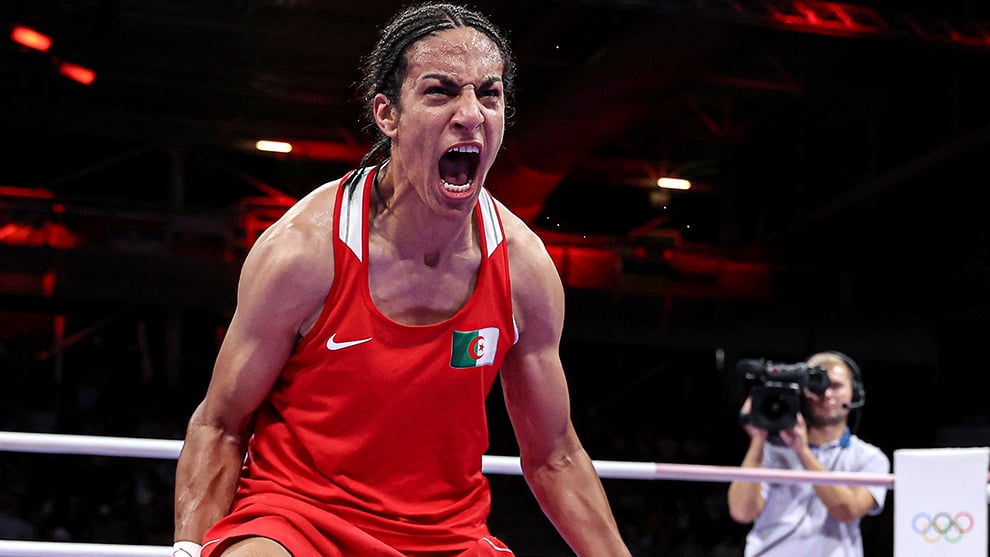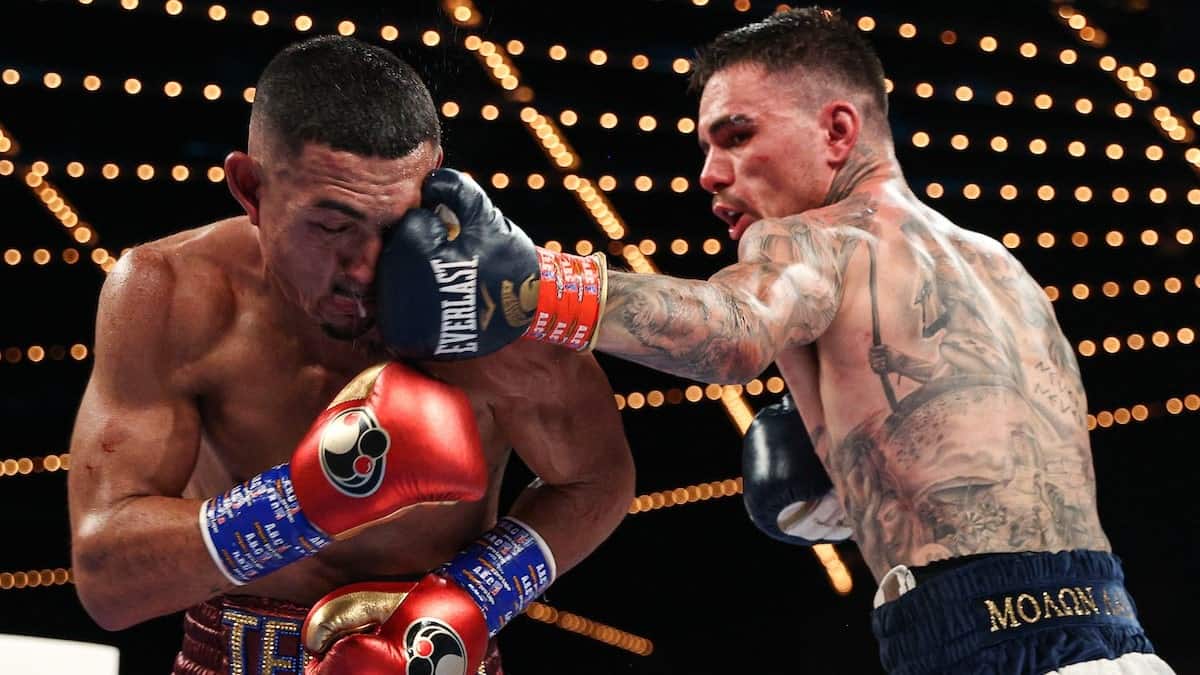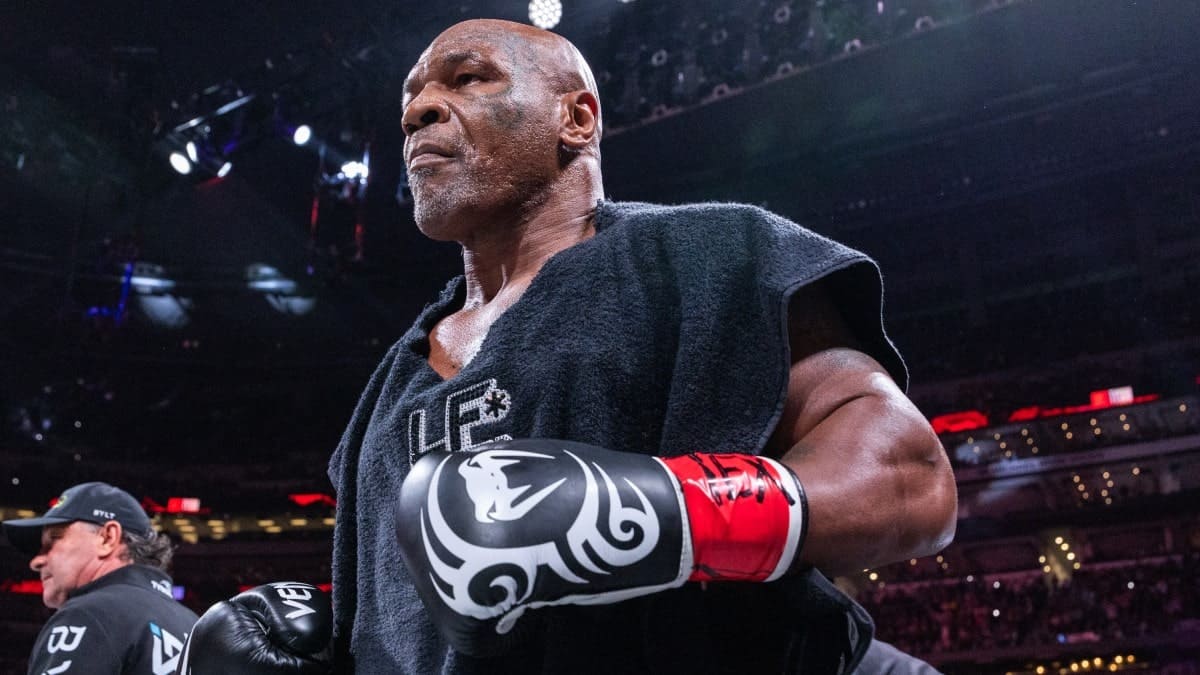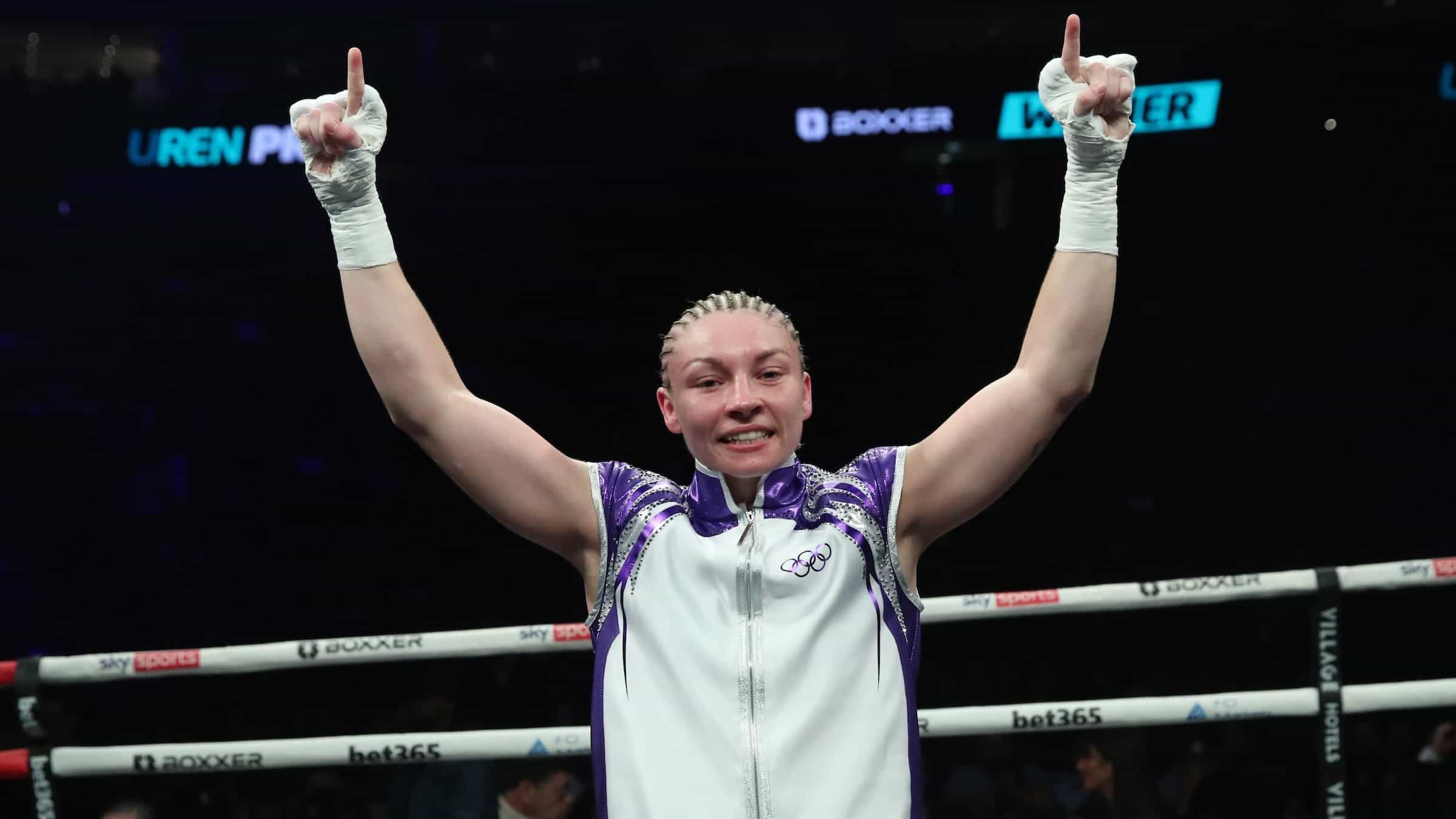Boxing
Does Olympic boxing provide equal opportunities?
Published
3 months agoon

The Olympics are no stranger to controversy, and Paris 2024 is no exception. From human and political rights to athlete safety, there are many stories circulating. But the story that seems to have captured the world’s attention is that of Imane Khelif and Lin Yu-ting, boxers from Algeria and Taiwan.
After Khelif and Yu-ting won their first fights, news broke that both boxers had been disqualified from the 2023 Women’s World Championships. Social media erupted and spread the idea that both fighters were transgender. Viral media picked up the story, and the wider boxing and sports world joined in to express their outrage.
This outrage was fueled by Khelif’s opening fight with Italian boxer Angela Carini. The fight lasted only 46 seconds, long enough to see Khelif land several punches before Carini gave up and broke down in tears. The Italian boxer stated that she had never felt such difficult punches and that she simply could not continue fighting. This show of emotion on Carini’s part promoted a forceful public opinion that Khelif had no place in women’s competition.
Imane Khelif and Angela Carini exchange blows (Photo: Richard Pelham/Getty Images)
At first glance, it appeared to be a debate about whether trans women should compete in women’s sports, and Khelif was cast as a trans woman, putting cis women at risk. As the days passed, a photo of a newborn Khelif emerged with a statement from International Olympic Committee (IOC) President Thomas Bach stating, “This is not about a transgender issue. This is about a woman competing in a women’s category.” Given this explanation, we need to take a closer look at why both boxers were disqualified from last year’s World Championships.
The International Boxing Association (IBA) (formerly known as AIBA) claimed that Khelif and Yu-ting failed gender qualification tests because their DNA test results showed that both athletes had XY chromosomes, but the results were never released. The IBA governed Olympic boxing until 2019, when the IOC suspended the organization due to governance, financial, and corruption issues. This made the IBA the first federation to be expelled from the Olympic movement. Khelif was disqualified after defeating Russian boxer Azalia Amineva.
Why are these two boxers only now, at the peak of their careers, being questioned about their gender? Khelif and Yu-ting competed at the 2020 Tokyo Olympics without any fuss, speculation or controversy.
Given the growing debate on equal opportunities, wouldn’t it be a good idea for us to take a closer look at what we really consider to be “level”
The term “difference in sex development” (DSD) (formerly known as intersex) defines a broad spectrum of conditions in which the development of chromosomes, sex organs, and hormones is atypical. Given this spectrum, how do we establish clear but fair guidelines for what is fair and what is not, what we consider a natural physical advantage and what is an unfair advantage?
This isn’t the first time we’ve seen a debate about gender eligibility. The most high-profile case was that of 800-meter runner Caster Semenya, who was asked to take medication to lower her testosterone levels if she wanted to continue competing. But the equivalent discussion surrounding male athletes is one of admiration, classifying elite athletes as superhumans because of their genetic makeup.
Michael Phelps won a staggering 28 Olympic medals in four Olympic games. News outlets and sports commentators were delighted to marvel at his disproportionately enormous arm span, double-jointed ankles, and ability to produce about half the lactic acid levels of his competitors. These unique physiological blessings are no doubt attributed to the fact that the 2000s were known as the “Phelps era.”
We should ask ourselves why we are punishing Semenya, Khelifa and Yu-ting while celebrating Phelps. The tone on social media was accusatory and at times felt like a witch hunt.
Prominent figures from politics and media have weighed in with their own cutting remarks: Donald Trump shared a video of Khelif fighting with the caption, “I WILL KEEP MEN AWAY FROM WOMEN’S SPORTS”; Piers Morgan published a news article under the headline, “Imane Khelif is NOT a biological woman” and separately tweeted a photo of Khelif with the caption, “If that’s a biological woman, then I’m a biological aardvark.”
Are these the words of men trying to protect women’s sports, or are they using this as an opportunity to make a political statement and remind everyone what a woman “should” look like?
I’ve been surprised (and slightly scared) by the speed at which disinformation spreads. The masses gorge on politically charged headlines, excited by the chance to throw out everything they think makes them moral authorities on the internet, without a care in the world to check facts or do due diligence.
The Olympics are the pinnacle of an amateur boxer’s career, but instead of being celebrated for their dedication and talent, Khelif and Yu-ting have become victims of slingshot judgments and media scandals. With the future of Olympic boxing hanging in the balance as it has yet to be added to the LA 2028 program, it would be a shame if this were to be the lasting memory of Olympic boxing.
You may like
Boxing
George Kambosos moves up to 140, adds Eddie Hearn to team
Published
3 hours agoon
November 23, 2024
Former unified lightweight champion George Kambosos approached promoter Eddie Hearn asking for more massive fights.
Kambosos has signed a co-promotional deal with Eddie Hearn, under which the Greek-Australian slugger will continue his association with DiBella Entertainment Inc. and his own company, Ferocious Promotions.
The 21-3 star will move up to the super lightweight division of Matchroom Boxing’s lively division. He aims to become a two-weight world champion in early 2025, and as part of the deal, a title fight is promised as long as he continues to win.
Since his stunning victory over Teofimo Lopez, Kambosos has never shied away from competing against the best. Those three losses on his resume came to Devin Haney [twice] and Vasily Lomachenko, all at home and all for world titles.
The 31-year-old is now set to face compatriot Liam Paro after defending his IBF title against Richardson Hitchins in December in Puerto Rico.
“I am thrilled to be working with Matchroom Boxing. I am excited to have signed a three-way promotional cooperation agreement with my long-time promoter DiBella Entertainment Inc. and Ferocious Promotions,” Kambosos said.
“I made great success and history when I moved up the Matchroom shows by winning my UK elimination fight against Lee Selby. The most noteworthy and unforgettable is my victory against Teofimo at Madison Square Garden in Up-to-date York to become the 135-pound world champion.
“I am officially announcing that I will be moving up to 140 pounds and signing with Matchroom will ensure my continued success and the legacy I want to leave in the sport of boxing.”
Hearn, who adds an experienced campaigner to his stable, added: “I am delighted to welcome George to the team. George’s victory over Teofimo tore up the script and showed that George was the man for the massive time. He has proven to be a huge attraction in Australia and one of the real driving forces behind the rapid growth of boxing Down Under.
“The 140-pound division is full of massive names and massive potential fights. Adding George to the mix only elevates the level, and a possible fight with Liam Paro is a truly appetizing prospect. If Liam manages to win in a great fight against Richardson on December 7th [the fight could be on].
Lou DiBella, who has worked with Kambosos for years, said: “I’m glad I was able to make a deal with my antique buddy Eddie to work with George Kambosos Jr. and Ferocious Promotions.
“Throughout his career, George has been a fighter who has never shied away from a challenge, and now he wants to test himself against top junior welterweights.
Matchroom works with top 140-pounders, including George’s compatriot Liam Paro, and, like DiBella Entertainment, is heavily invested in Australia.
“It’s a natural partnership,” added the Up-to-date Yorker.
Boxing
Mike Tyson had absolutely no chance of knocking out Jake Paul
Published
2 days agoon
November 21, 2024
One of the hottest topics surrounding Mike Tyson’s return at the age of 58 was the possibility of the boxing legend scoring a knockout of Jake Paul.
WBN has weighed in on this topic several times, questioning the validity of five-second training clips that revealed nothing about Tyson’s abilities at this overdue age. One of the most intriguing observations during the preparations was the opinion of UFC commentator Daniel Cormier.
Speaking on his show “Funky and the Champ,” Cormier reflected on Tyson’s social media videos and offered an informed opinion on the meaning of the clips.
“I understand that [he is in amazing shape at 58]and I understand what he is saying [he feels as though he can compete]– Cormier said. “And I agree that when he hits the pads with Rafael Cordeiro, it looks like there’s still something left in him.
“But then I watch Jake Paul fight Mike Perry. I saw Jake Paul get overwhelmed to the point where he started to feel uncomfortable. It looked like Mike Perry had a chance. But Jake has a reserve tank he can go to and benefit from because he’s 28 years ancient. Then he comes back and finally finishes Mike Perry.
“At the beginning of the fight, Mike Perry gets beaten up and dropped. He looks trained and unmatched. This worries me because what if it looks like a 58-year-old man fighting a 28-year-old man while Mike can’t employ the backup tank to stay and compete with this newborn kid? I think it’s a failure for Jake Paul because if you beat Mike Tyson, everyone will love him.
He added: “What if Mike knocks him out? It’s over. Everything is ready. This would be the backfire of all time. If he gets knocked out, nothing like that has ever happened in the history of the sport.”
Unfortunately for Tyson, this revenge backfired spectacularly, as the former heavyweight champion’s return was the only event that bombed. Tyson had nothing left twenty years after he had nothing left in his tank and no desire to box in his mind.
Paul parlayed this into a money-making scheme that would forever be a success for him and his company, but would be poorly received by the die-hard boxing fraternity.
Cormier’s words resonate, especially after what happened in the ring when Mike Tyson struggled to shift into first gear, warning former fighters thinking about returning after 50.
Boxing
Lauren Price looks to win Jonas vs Habazin with an undercard victory
Published
2 days agoon
November 21, 2024
Lauren Price MBE will defend her world title for the first time on Saturday, December 14 at the Exhibition Center in Liverpool, while the Welsh champion plans to stage an all-British unification clash with welterweight rival Natasha Jonas, which will headline the Collision Course that night.
Price defends her WBA welterweight title against undefeated Colombian challenger Bexcy Mateus on the same night as Jonas attempts to unify the IBF and WBC titles with Ivana Habazin as part of BOXXER’s ‘Collision Course’ fight night, which can be seen live and exclusively on Sky Sports in the UK UK and Ireland and Peacock in the US.
Price MBE (7-0, 1 KO) made history with an excellent performance, defeating former undisputed welterweight world ruler Jessica McCaskill in front of her fans in Cardiff in May.
Price, the first Welsh boxer to win Olympic gold, once again entered the record books by becoming the country’s first world champion in just her seventh professional fight. The 30-year-old from Ystrad Mynach, who has yet to lose a round as a professional, will now defend her world titles for the first time as she focuses on dominating the welterweight division.
Mateus (7-0, 6 KO), ranked No. 5 in the WBA rankings, is undefeated in the professional ranks and has won all but one of her seven fights by knockout. The 29-year-old from Bogota, fighting outside her native Colombia for the first time, will now have her first chance at global fame, with her goal to dethrone Price and take the top spot in the welterweight division.
Lauren Price said: “I’m excited to defend my belts and complete what has been an crucial year for me. I have full respect for Mateusz. I will prove that I am the best in the division and I will not let anything or anyone stand in my way of being undisputed.”
BOXXER Founder and CEO Ben Shalom said: “It’s a massive night for the women’s welterweight division with three world champions competing. Natasha Jonas returns to her hometown for a mandatory unification fight against Ivana Habazin, and Lauren Price defends her world titles against undefeated challenger Bexcy Mateus. The fight for the undisputed continues. If Natasha and Lauren win on December 14, it will set the stage for a massive “Battle Of Britain” world title unification fight next year.
There’s reason to celebrate as BOXXER delivers a Christmas cracker to end the year. In addition to the world championship fights between Natasha Jonas and Lauren Price, fight fans can expect a gala full of drama and entertainment.
Undefeated Irishman Stephen McKenna (15-0, 14 KO) will face English champion Lee Cutler (14-1, 7 KO) in an invigorating super welterweight fight for the silver WBC International title.
McKenna impressed fans in his three-round fight against Joe Laws last August at Oakwell Stadium in Barnsley. The two struck out in the first round, then McKenna began to apply the pressure, losing Laws three more times and maintaining his undefeated record after a third-round stoppage.
English cruiserweight champion Viddal Riley (11-0, 6 KO) returns to action from a rib injury that has kept him out of the ring since a career-best victory over Mikael Lawal in March. Riley will be looking to shake off the ring rust as he takes on high-profile opponents in the recent year.
Undefeated Chorley super middleweight Mark Jeffers (18-0, 5 KO) scored an explosive fifth-round knockout victory over Darren Johnston in May and will be looking to bring more drama to Liverpool’s Exhibition Center as he goes in search of his 19th professional win.
Mason Cartwright (20-4-1, 8 KO) from Cheshire, a former two-time British title challenger from Ellesmere Port, will be counting on local support as he returns to the title track.
After signing a promotional contract with BOXXER, local star Frankie Stringer (8-0, 1 KO) can achieve his third victory in 2024, when he returns in front of his fans in Liverpool. The 23-year-old lightweight fighter is a player of the notable city team Rotunda ABC, and his manager is former world champion Liam Smith.

Darren Till threatens to kick Tommy Fury in the head after the match and risk disqualification

George Kambosos moves up to 140, adds Eddie Hearn to team

‘DANIEL DUBOIS WILL FACE A BIGGER, better Joseph Parker!’ – NICK CAMPBELL sparred both

Max Holloway is on a mission at UFC 212

Carl Froch predicts that Artur Beterbiev vs Dmitry Bivol

Artur Beterbiev vs Dmitry Bivol

‘DANIEL DUBOIS WILL FACE A BIGGER, better Joseph Parker!’ – NICK CAMPBELL sparred both

“I Don’t Understand It!” – Johnny Nelson On Anthony Joshua & Ben Davison Link-Up

Jorge Masvidal IMMEDIATELY AFTER BRAWL with Nate Diaz Team; REACTS to Trainer getting JUMPED
Trending
-

 MMA6 months ago
MMA6 months agoMax Holloway is on a mission at UFC 212
-

 Interviews1 month ago
Interviews1 month agoCarl Froch predicts that Artur Beterbiev vs Dmitry Bivol
-

 Interviews1 month ago
Interviews1 month agoArtur Beterbiev vs Dmitry Bivol
-

 MMA6 months ago
MMA6 months agoCris Cyborg ready to add a UFC title to her collection
-

 MMA6 months ago
MMA6 months agoThe Irish showed up in droves at the Mayweather-McGregor weigh-in
-

 Boxing4 months ago
Boxing4 months agoLucas Bahdi ready to test his skills against Ashton Sylve
-

 Interviews6 months ago
Interviews6 months agoI fell in love with boxing again
-

 Opinions & Features1 month ago
Opinions & Features1 month agoDmitry Bivol: The story so far


